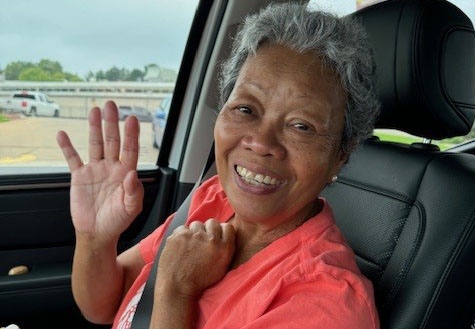- Diseases
- Acoustic Neuroma (14)
- Adrenal Gland Tumor (24)
- Anal Cancer (66)
- Anemia (2)
- Appendix Cancer (16)
- Bile Duct Cancer (28)
- Bladder Cancer (68)
- Brain Metastases (28)
- Brain Tumor (230)
- Breast Cancer (716)
- Breast Implant-Associated Anaplastic Large Cell Lymphoma (2)
- Cancer of Unknown Primary (4)
- Carcinoid Tumor (8)
- Cervical Cancer (154)
- Colon Cancer (164)
- Colorectal Cancer (110)
- Endocrine Tumor (4)
- Esophageal Cancer (42)
- Eye Cancer (36)
- Fallopian Tube Cancer (6)
- Germ Cell Tumor (4)
- Gestational Trophoblastic Disease (2)
- Head and Neck Cancer (6)
- Kidney Cancer (124)
- Leukemia (344)
- Liver Cancer (50)
- Lung Cancer (288)
- Lymphoma (284)
- Mesothelioma (14)
- Metastasis (30)
- Multiple Myeloma (98)
- Myelodysplastic Syndrome (60)
- Myeloproliferative Neoplasm (4)
- Neuroendocrine Tumors (16)
- Oral Cancer (100)
- Ovarian Cancer (170)
- Pancreatic Cancer (166)
- Parathyroid Disease (2)
- Penile Cancer (14)
- Pituitary Tumor (6)
- Prostate Cancer (144)
- Rectal Cancer (58)
- Renal Medullary Carcinoma (6)
- Salivary Gland Cancer (14)
- Sarcoma (236)
- Skin Cancer (294)
- Skull Base Tumors (56)
- Spinal Tumor (12)
- Stomach Cancer (60)
- Testicular Cancer (28)
- Throat Cancer (90)
- Thymoma (6)
- Thyroid Cancer (98)
- Tonsil Cancer (30)
- Uterine Cancer (78)
- Vaginal Cancer (14)
- Vulvar Cancer (18)
- Cancer Topic
- Adolescent and Young Adult Cancer Issues (20)
- Advance Care Planning (10)
- Biostatistics (2)
- Blood Donation (18)
- Bone Health (8)
- COVID-19 (362)
- Cancer Recurrence (120)
- Childhood Cancer Issues (120)
- Clinical Trials (624)
- Complementary Integrative Medicine (24)
- Cytogenetics (2)
- DNA Methylation (4)
- Diagnosis (230)
- Epigenetics (6)
- Fertility (62)
- Follow-up Guidelines (2)
- Health Disparities (14)
- Hereditary Cancer Syndromes (122)
- Immunology (18)
- Li-Fraumeni Syndrome (8)
- Mental Health (118)
- Molecular Diagnostics (8)
- Pain Management (62)
- Palliative Care (8)
- Pathology (10)
- Physical Therapy (18)
- Pregnancy (18)
- Prevention (892)
- Research (390)
- Second Opinion (74)
- Sexuality (16)
- Side Effects (604)
- Sleep Disorders (10)
- Stem Cell Transplantation Cellular Therapy (216)
- Support (404)
- Survivorship (322)
- Symptoms (184)
- Treatment (1772)
Papillary thyroid cancer survivor on clinical trials: ‘Stable is the new remission’
BY MD Anderson
3 minute read | Published March 03, 2017
Medically Reviewed | Last reviewed by an MD Anderson Cancer Center medical professional on March 03, 2017
Debbie Ann Heckeroth wants everyone to know it’s possible to live a good life while having stage IV cancer.
Debbie lived in California when she was diagnosed with papillary thyroid cancer in 2002. She went through a few rounds of radioactive iodine treatment there before her physician discovered tumors in her lungs. In 2004, her thyroid cancer reached stage IV, and she was told she needed to go to another hospital for clinical trials.
“You’d think the hardest thing would be being told you have cancer,” Debbie says. “But being told, ‘There’s nothing more we can do for you at this facility,’ you’re in a daze. You walk around trying to figure out how it could possibly be that you’re in your early 40s and you’ve just been told, ‘This is it.’”
When she was told that clinical trials were in her future, she immediately knew that she wanted to go to MD Anderson.
“I chose MD Anderson not only because it was recommended by friends, but also because of its worldwide reputation,” she says.
Finding hope in a Phase I clinical trial
“My first doctor was Naifa Busaidy, M.D. I was completely happy with her. She would not leave the room until every single question I had was answered to exactly my level of expectation,” Debbie says. “I also had a lot of hope. Not only did I feel like I would live, I felt by the time that something needed to be done again, the progress was going to be made here with the clinical trials or new medications was going to help me.”
In 2008, Debbie started a Phase I clinical trial of a combination of Sorafenib and Tipifarnib, two chemotherapy medications that target the cancer at a microcellular level. She quickly saw positive effects. Within two months, her tumors started shrinking.
“When I came back for four and six months, I had a lot more shrinkage than the first time,” Debbie says. “It stayed that way for probably the first seven or eight months, then it just stopped. My tumors stopped growing, but they also stopped shrinking.”
Debbie says that the dosage of the medication has changed a few times, but she’s been stable for the eight years she’s been on them.
“To me, stable is the new remission,” she says.
Deciding what’s next after the clinical trial
Debbie’s clinical trial will end in early 2017, and she and Busaidy are already going through all of her options for treatment.
“I’m not worried. I’m not scared. I’m not nervous at all,” Debbie says.
One reason she’s not worried is because of one of her favorite things about MD Anderson: think tanks.
“Your case can be brought up in a room full of brilliant people who will hash out what might or might not work,” Debbie says. “That was really huge for me: when I found out my name would be brought up as a case study and the best minds were all working on it.”
Advice for others facing a stage IV cancer diagnosis
Debbie went into a clinical trial without knowing anyone who had been part of one. She hopes her story will inspire other people, especially those who are still on the fence about joining one.
“When I started clinical trials, I thought you would die or be cured in a year,” Debbie says. “I had no idea you could survive with stage IV cancer as long as I have. I don’t see my passing in the future. I just have hope.”
She also wants others to know that it is possible to live a good life after receiving a cancer diagnosis.
“I had no clue how many people are actually out in the world who are stage IV, and you’d never know it just by looking at them,” Debbie says. “You can still live with cancer.”
Request an appointment at MD Anderson online or by calling 1-844-322-2786.
Related Cancerwise Stories

You can still live with cancer.
Debbie Ann Heckeroth
Survivor





